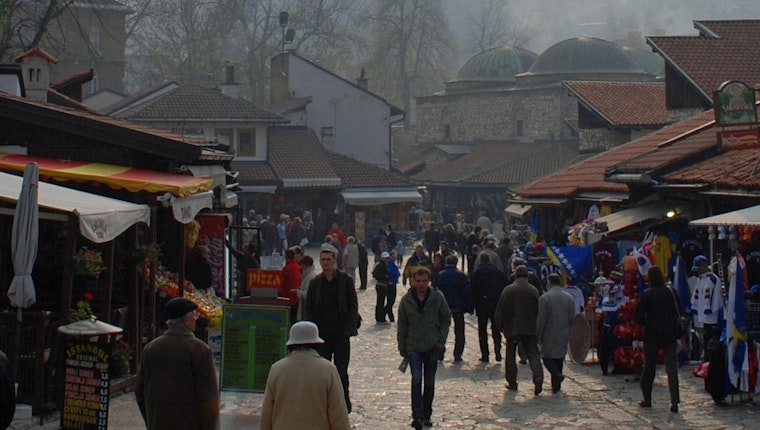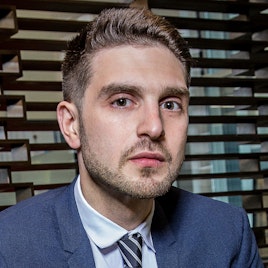Keeping Open Society Alive in Sarajevo
By Alexander Soros

During the Bosnian war, Sarajevo was under siege for nearly four years—the longest of any capital in modern history. I recently visited the city for the first time, and was immersed not only in the horrors of the past, but also the challenges of the future. It was a profound experience.
It was particularly moving to visit the museum commemorating the tunnel that during the height of the war was a vital link between the inhabitants of Sarajevo and the outside world. In December 1992, when my father, George Soros, donated $50 million in humanitarian aid for the residents of Sarajevo, some of the funds went towards financing the electric cable that ran the length of the tunnel. My father felt compelled to act, recognizing that his funding could make a significant contribution towards easing the suffering of 350,000 civilians but also draw attention to a conflict that no one else was stepping forward to address.
When my father visited Sarajevo in 1993, it reminded him of his home city Budapest during World War II—the devastation, the targeting of a particular people, the attempt to wipe out any vestiges of a culture. I’ve heard that his gift at the time saved more lives than the combined efforts of all national and multilateral institutions, including by restoring electricity and the flow of clean water and developing a plan to grow vegetables in the midst of a food shortage.
For my father, helping Sarajevo survive also meant making the city work again, to keep institutions alive and functioning even as the bombs rained down from the sky. He funded a radio station, financed printing and distribution of textbooks, and provided newsprint to help the spread of information, as well as supported arts and culture projects such as the creation of the city’s film festival. In a time of fear and darkness, these acts celebrated the invincibility of the human spirit.
My father’s approach to philanthropy has always been anchored in local perspectives. In Sarajevo, this was particularly important to him. The above film features several of the people who played an integral role in helping keep open society alive during the war. Among them is Zdravko Grebo, the first head of Open Society’s Bosnian foundation, who passed away earlier this year. His immense courage and belief in the future was reflected in his commitment to his country and the protections of human rights, and that conviction truly drove his work with Open Society.
Today, the foundation in Sarajevo continues to work on healing the scars of war. There is still much to be done in the wake of a conflict that killed nearly 14,000, as well as fueled ethnic and political divisions that persist today. Where possible, the foundation helps to carve out a better future for Bosnia and Herzegovina, whether it is by supporting the historical museum so that subsequent generations can understand what it was like during the war, supporting a teachers’ association that can guide the country’s youth, or funding investigative journalism to shine a light on truth.

Alexander Soros is chair of the Board of Directors.
